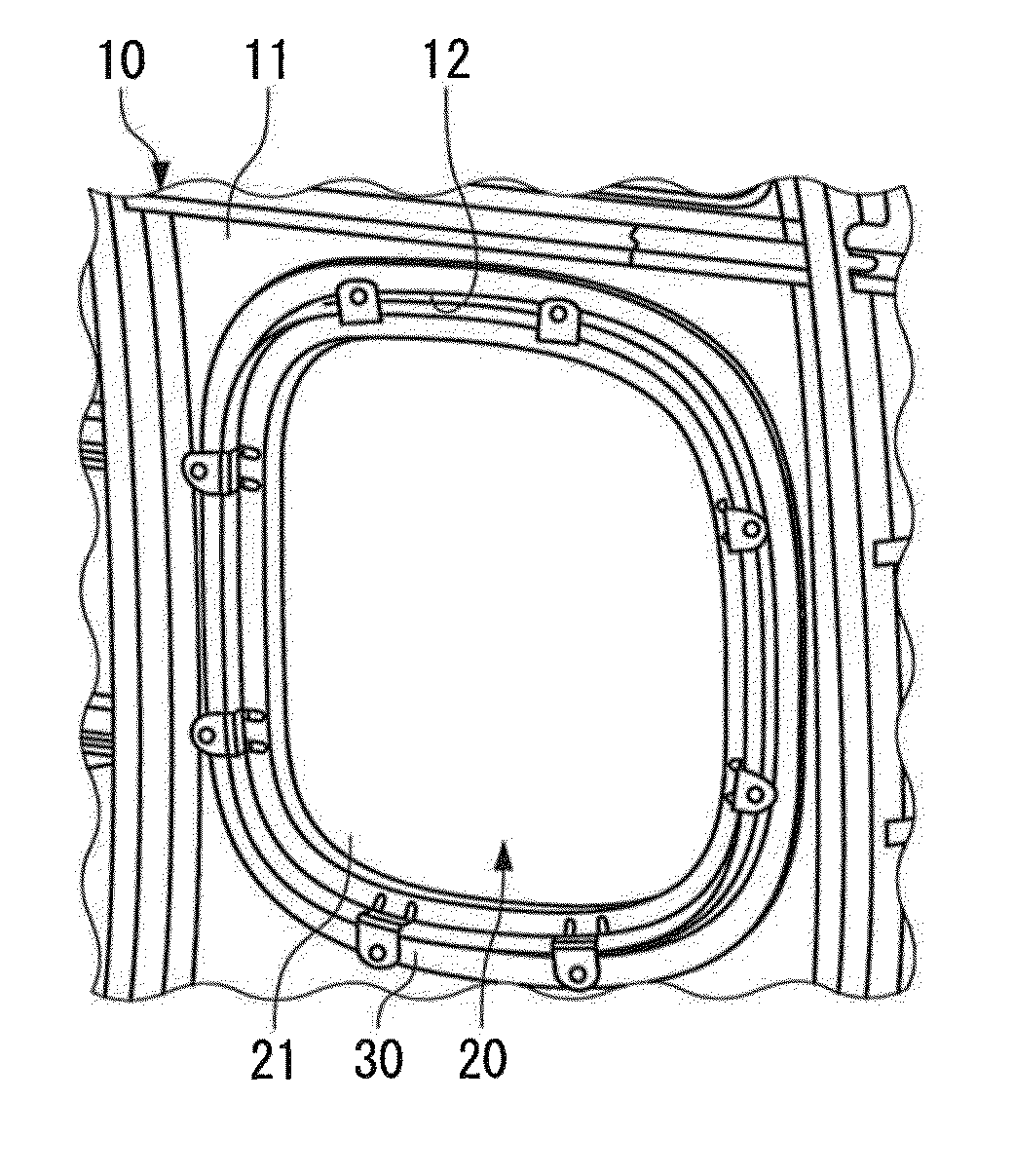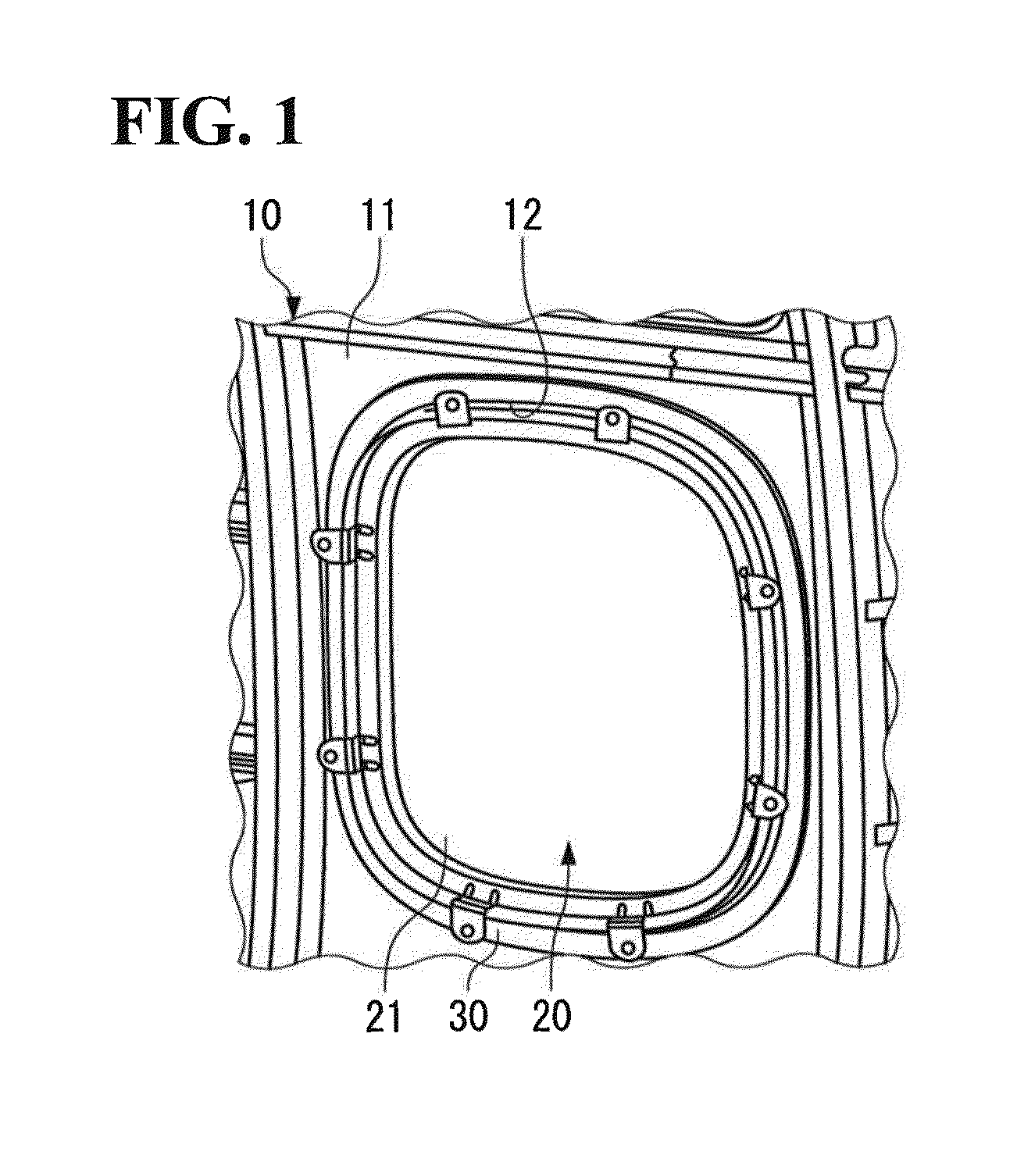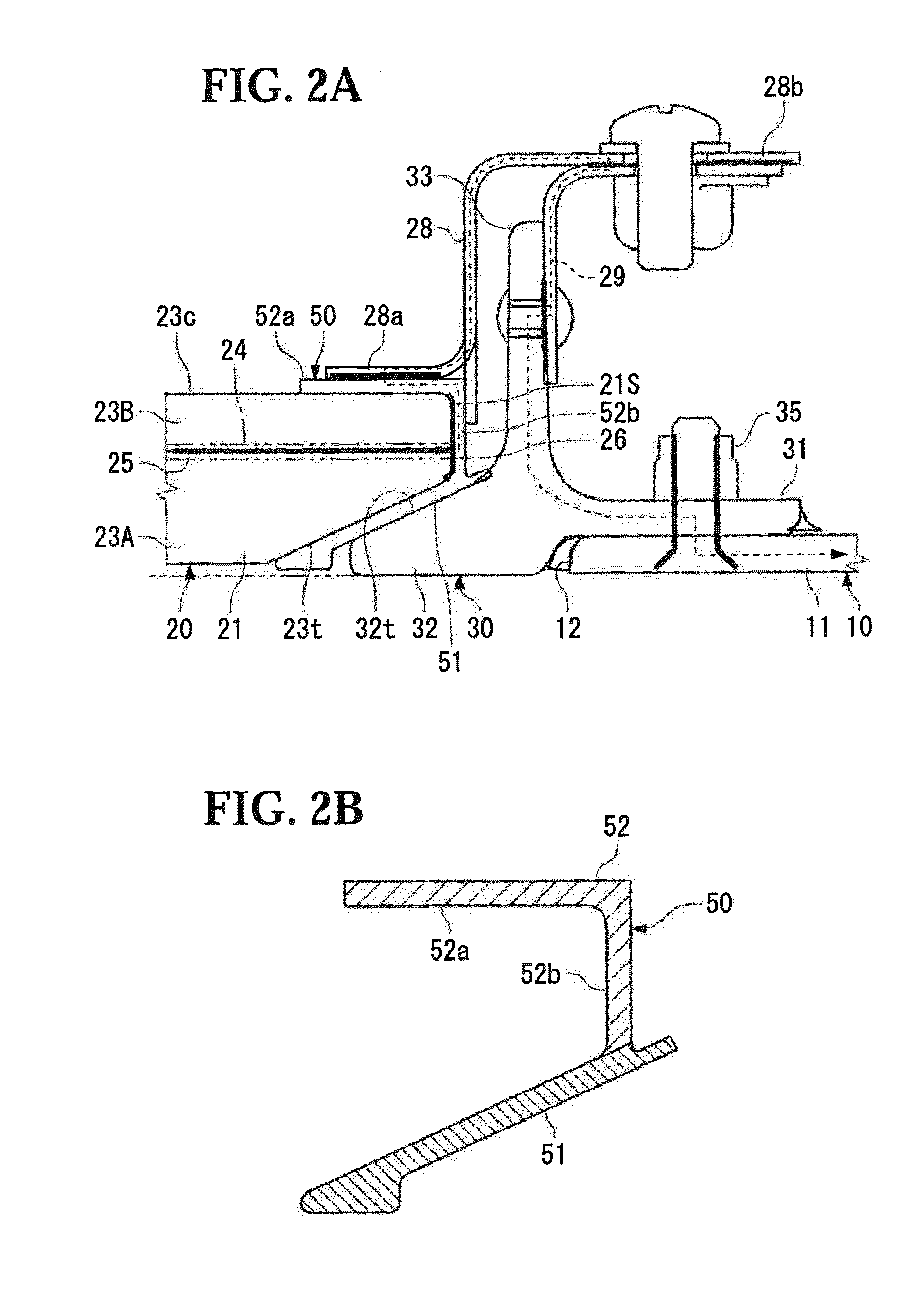Window of aircraft, closing member for opening and gasket seal
a technology for aircraft and closing members, applied in the direction of fuselages, mechanical equipment, transportation and packaging, etc., can solve the problems of no electromagnetic shielding effect, inability to prevent electromagnetic waves, and galvanic corrosion due to bonded dissimilar metals tend to occur in humid, humid or salt-water atmosphere environments, so as to prevent invasion and leakage of electromagnetic waves, prevent galvanic corrosion, and obtain the effect of preventing electromagnetic noise and galvanic corrosion
- Summary
- Abstract
- Description
- Claims
- Application Information
AI Technical Summary
Benefits of technology
Problems solved by technology
Method used
Image
Examples
embodiments
[0062]Examinations were carried out on the electromagnetic wave attenuation effect, with the volume resistivity of the gasket seal being changed. A gasket seal as shown in FIG. 2 was provided on the outer perimeter of each of two acrylic plates having thicknesses t1=9.5 mm and t2=4 mm, and an external dimension of 248 mm×348 mm, and electromagnetic shielding effectiveness tests were carried out in accordance with IEEE STD-299-2006 “IEEE Standard Method for Measuring the Effectiveness of Electromagnetic Shielding Enclosures”. In this case, in addition to a gasket seal of a reference having no conductivity, gasket seals having a volume resistivity of 1.7 Ωcm (Measurement 1), that of 5 Ωcm (Measurement 2), that of 210 Ωcm (Measurement 3), and that of 310 Ωcm (Measurement 4) were prepared. Moreover, as the acrylic plate, except for comparative examples, shield mesh materials composed of polyester fibers of monofilaments copper-plated and black nickel-plated with a surface resistivity of...
PUM
 Login to View More
Login to View More Abstract
Description
Claims
Application Information
 Login to View More
Login to View More - R&D
- Intellectual Property
- Life Sciences
- Materials
- Tech Scout
- Unparalleled Data Quality
- Higher Quality Content
- 60% Fewer Hallucinations
Browse by: Latest US Patents, China's latest patents, Technical Efficacy Thesaurus, Application Domain, Technology Topic, Popular Technical Reports.
© 2025 PatSnap. All rights reserved.Legal|Privacy policy|Modern Slavery Act Transparency Statement|Sitemap|About US| Contact US: help@patsnap.com



